This article was co-authored by Alan O. Khadavi, MD, FACAAI and by wikiHow staff writer, Amy Bobinger. Dr. Alan O. Khadavi is a Board Certified Allergist and a Pediatric Allergy Specialist based in Los Angeles, California. He holds a BS in biochemistry from the State University of New York (SUNY) at Stony Brook and an MD from the State University of New York Health Science Center at Brooklyn. Dr. Khadavi completed his pediatric residency at Schneider Children’s Hospital in New York, and then went on to complete his allergy and immunology fellowship and pediatric residency at Long Island College Hospital. He is board certified in adult and pediatric allergy/immunology. Dr. Khadavi is a Diplomate of the American Board of Allergy and Immunology, a Fellow of the American College of Allergy, Asthma & Immunology (ACAAI), and a member of the American Academy of Allergy, Asthma & Immunology (AAAAI). Dr. Khadavi's honors include Castle Connolly’s list of Top Doctors 2013-2020, and Patient Choice Awards "Most Compassionate Doctor" in 2013 & 2014.
There are 25 references cited in this article, which can be found at the bottom of the page.
This article has been viewed 108,545 times.
Having an allergic reaction can be scary, especially if you don't know what's causing it. We're here to answer some of your most commonly-asked questions about allergies, including what the symptoms are and what might be causing them. To be 100% sure what's going on, though, make an appointment with an allergist for allergy testing. However, if you're having symptoms of a severe allergic reaction, like you're having trouble breathing, get emergency medical help as soon as possible.
Steps
What are the symptoms of an allergic reaction?
-
1Allergies can present with a lot of different symptoms. This mostly depends on what type of allergic reaction you're having, although similar allergies can present differently for different people. There are a few common, symptoms, though. These might include:[1]
- An itchy or tingling feeling in your mouth
- Itchy, red, or watery eyes[2]
- Sneezing or an itchy, runny, or stuffy nose
- Wheezing, trouble breathing, coughing, or tightness in your chest
- Itchy skin, raised welts (called hives), or eczema
- Swelling in your lips, tongue, face, eyes, or throat
- Stomach pain, nausea, vomiting, or diarrhea
-
2Get emergency help if you have symptoms of a severe allergic reaction. Sometimes, an allergy can lead to a severe reaction called anaphylaxis. If this happens, you need to get emergency medical care right away, or it could lead to coma or even death. If you've already been prescribed an epinephrine injection, give it to yourself as quickly as possible, but still get to the emergency room in case the symptoms return.[3] Symptoms of anaphylaxis include:[4]
- A swollen throat or constriction of your airways
- The feeling of a lump in your throat
- Shock
- Sudden drastic drop in blood pressure
- Rapid pulse
- Dizziness or fainting
How do you know what you're allergic to?
-
1Track your symptoms at home to narrow down your triggers. Every time you experience allergy symptoms, write them down in a notebook or an app on your phone. Note anything you ate or drank, whether you touched any animals, any lotions, soaps, or cosmetics you used, and anything else you can think of that might be relevant. You might even write down what you were wearing—you could be allergic to a certain fabric or laundry detergent.[7]
- In addition, write down where you were—like whether you were indoors or outdoors.
- Try to think back for at least a couple of hours before your symptoms occurred. Allergies symptoms usually show up pretty quickly after exposure to your allergen, but they can sometimes take a while to develop.[8]
-
2See an allergist for testing to know for sure. Although it's fine to discuss your allergy concerns with your primary care provider, it's best to see an allergist for further testing and treatment. At your first appointment, go over your allergy diary with your allergist. They'll also likely talk to you about your family history, and they may do a physical exam.[9]
- Your allergist will likely recommend testing to determine exactly what's triggering your allergies. A skin prick test is the most common type of allergy test, although they may suggest other tests, as well.
How can you tell if you have a food allergy?
-
1Your symptoms will appear shortly after you eat your trigger food. You might have tingling in your mouth; swelling of your lips, tongue, face, or throat; hives; or an anaphylactic reaction after you eat. Since allergies can be triggered by a hidden ingredient in your food, it's important to see an allergist to determine exactly what you need to avoid. Common foods that trigger allergies include:[21]
- Shellfish (shrimp, lobster, crab)
- Fish
- Peanuts or tree nuts (pecans, walnuts)
- Cow's milk
- Eggs
- Soy
- Wheat
- Certain raw foods
-
2Try an elimination diet if your allergist suspects food allergies. This involves cutting any foods completely out of your diet that you might be allergic to for about 1-2 weeks. Then, you'll introduce them back in one at a time, waiting a few days each time to see if you have any reaction to them.[22]
- This won't always give you precise results—an elimination diet can't tell you if you're sensitive to a food as opposed to being truly allergic to it, for instance.[23]
- Only do an elimination diet under the guidance of an allergist. If you've ever had a severe food reaction, it's probably not safe to do an elimination diet at all.
- Your allergist might also recommend an oral food challenge, where you'll eat small amounts of a trigger food to see if you have a reaction. Because you could have a life-threatening allergic reaction, this should only ever be done in your allergist's office or a hospital setting, and only under direct medical supervision.[24]
Can people be allergic to medicine?
-
1Yes, talk to your doctor right away if you think this is the case. Although it's important to take all of your medication as directed by your healthcare provider, if you think you're having an allergic reaction to something you've taken, stop using it right away and call the doctor. They'll work with you to determine if that's the cause of your symptoms, and if so, what else you might take instead. Some of the symptoms of a medication allergy might include:[26]
- Hives, itching, or a rash
- Swelling of your face
- Wheezing or shortness of breath
- Anaphylaxis
-
2Certain medications and conditions may make allergies more likely. You might be more likely to experience a drug allergy if you take medications like penicillin, certain pain relievers, chemotherapy drugs, or medicines that treat autoimmune diseases. Other things that might increase your risk include:[27]
- Having other allergies, like hay fever
- Taking the drug for a long time or at high doses
- Having certain illnesses like HIV
- Having a history or family history of allergies to other medicines.
Expert Q&A
Did you know you can get expert answers for this article?
Unlock expert answers by supporting wikiHow
-
QuestionCan you be allergic to natural products?
 Mohiba Tareen, MDMohiba Tareen is a board certified Dermatologist and the founder of Tareen Dermatology located in Roseville, Maplewood and Faribault, Minnesota. Dr. Tareen completed medical school at the University of Michigan in Ann Arbor, where she was inducted into the prestigious Alpha Omega Alpha honor society. While a dermatology resident at Columbia University in New York City, she won the Conrad Stritzler award of the New York Dermatologic Society and was published in The New England Journal of Medicine. Dr. Tareen then completed a procedural fellowship which focused on dermatologic surgery, laser, and cosmetic dermatology.
Mohiba Tareen, MDMohiba Tareen is a board certified Dermatologist and the founder of Tareen Dermatology located in Roseville, Maplewood and Faribault, Minnesota. Dr. Tareen completed medical school at the University of Michigan in Ann Arbor, where she was inducted into the prestigious Alpha Omega Alpha honor society. While a dermatology resident at Columbia University in New York City, she won the Conrad Stritzler award of the New York Dermatologic Society and was published in The New England Journal of Medicine. Dr. Tareen then completed a procedural fellowship which focused on dermatologic surgery, laser, and cosmetic dermatology.
FAAD Board Certified Dermatologist Absolutely. If something is natural, it doesn't automatically mean it's safe to use or that you can't be allergic to it. You can be allergic to nuts, for example, and a natural shea butter product is made out of nuts. That's going to cause a reaction. If a natural product is irritating your skin, stop using it.
Absolutely. If something is natural, it doesn't automatically mean it's safe to use or that you can't be allergic to it. You can be allergic to nuts, for example, and a natural shea butter product is made out of nuts. That's going to cause a reaction. If a natural product is irritating your skin, stop using it. -
QuestionHow can I fix a sensitivity or allergy to a scent?
 Alan O. Khadavi, MD, FACAAIDr. Alan O. Khadavi is a Board Certified Allergist and a Pediatric Allergy Specialist based in Los Angeles, California. He holds a BS in biochemistry from the State University of New York (SUNY) at Stony Brook and an MD from the State University of New York Health Science Center at Brooklyn. Dr. Khadavi completed his pediatric residency at Schneider Children’s Hospital in New York, and then went on to complete his allergy and immunology fellowship and pediatric residency at Long Island College Hospital. He is board certified in adult and pediatric allergy/immunology. Dr. Khadavi is a Diplomate of the American Board of Allergy and Immunology, a Fellow of the American College of Allergy, Asthma & Immunology (ACAAI), and a member of the American Academy of Allergy, Asthma & Immunology (AAAAI). Dr. Khadavi's honors include Castle Connolly’s list of Top Doctors 2013-2020, and Patient Choice Awards "Most Compassionate Doctor" in 2013 & 2014.
Alan O. Khadavi, MD, FACAAIDr. Alan O. Khadavi is a Board Certified Allergist and a Pediatric Allergy Specialist based in Los Angeles, California. He holds a BS in biochemistry from the State University of New York (SUNY) at Stony Brook and an MD from the State University of New York Health Science Center at Brooklyn. Dr. Khadavi completed his pediatric residency at Schneider Children’s Hospital in New York, and then went on to complete his allergy and immunology fellowship and pediatric residency at Long Island College Hospital. He is board certified in adult and pediatric allergy/immunology. Dr. Khadavi is a Diplomate of the American Board of Allergy and Immunology, a Fellow of the American College of Allergy, Asthma & Immunology (ACAAI), and a member of the American Academy of Allergy, Asthma & Immunology (AAAAI). Dr. Khadavi's honors include Castle Connolly’s list of Top Doctors 2013-2020, and Patient Choice Awards "Most Compassionate Doctor" in 2013 & 2014.
Board Certified Allergist
-
QuestionWhy do I always get allergies in Autumn?
 Alan O. Khadavi, MD, FACAAIDr. Alan O. Khadavi is a Board Certified Allergist and a Pediatric Allergy Specialist based in Los Angeles, California. He holds a BS in biochemistry from the State University of New York (SUNY) at Stony Brook and an MD from the State University of New York Health Science Center at Brooklyn. Dr. Khadavi completed his pediatric residency at Schneider Children’s Hospital in New York, and then went on to complete his allergy and immunology fellowship and pediatric residency at Long Island College Hospital. He is board certified in adult and pediatric allergy/immunology. Dr. Khadavi is a Diplomate of the American Board of Allergy and Immunology, a Fellow of the American College of Allergy, Asthma & Immunology (ACAAI), and a member of the American Academy of Allergy, Asthma & Immunology (AAAAI). Dr. Khadavi's honors include Castle Connolly’s list of Top Doctors 2013-2020, and Patient Choice Awards "Most Compassionate Doctor" in 2013 & 2014.
Alan O. Khadavi, MD, FACAAIDr. Alan O. Khadavi is a Board Certified Allergist and a Pediatric Allergy Specialist based in Los Angeles, California. He holds a BS in biochemistry from the State University of New York (SUNY) at Stony Brook and an MD from the State University of New York Health Science Center at Brooklyn. Dr. Khadavi completed his pediatric residency at Schneider Children’s Hospital in New York, and then went on to complete his allergy and immunology fellowship and pediatric residency at Long Island College Hospital. He is board certified in adult and pediatric allergy/immunology. Dr. Khadavi is a Diplomate of the American Board of Allergy and Immunology, a Fellow of the American College of Allergy, Asthma & Immunology (ACAAI), and a member of the American Academy of Allergy, Asthma & Immunology (AAAAI). Dr. Khadavi's honors include Castle Connolly’s list of Top Doctors 2013-2020, and Patient Choice Awards "Most Compassionate Doctor" in 2013 & 2014.
Board Certified Allergist
Warnings
- If you experience any signs of an allergic reaction, see your doctor. If the reaction is severe, get emergency medical assistance right away.⧼thumbs_response⧽
References
- ↑ https://acaai.org/allergies/symptoms/
- ↑ https://www.nhs.uk/conditions/allergies/symptoms/
- ↑ Alan O. Khadavi, MD, FACAAI. Board Certified Allergist. Expert Interview. 29 July 2020.
- ↑ https://my.clevelandclinic.org/health/diseases/8619-anaphylaxis
- ↑ https://newsinhealth.nih.gov/2014/10/cold-flu-or-allergy
- ↑ https://health.clevelandclinic.org/what-the-color-of-your-snot-really-means/
- ↑ https://www.allergy.org.au/patients/allergy-testing/causes-of-allergy
- ↑ https://www.nhs.uk/conditions/allergies/symptoms/
- ↑ https://acaai.org/allergies/allergy-treatment/diagnosing-allergies
- ↑ https://www.nhs.uk/conditions/allergies/diagnosis/
- ↑ https://acaai.org/allergies/allergy-treatment/diagnosing-allergies
- ↑ https://acaai.org/allergies/allergy-treatment/diagnosing-allergies
- ↑ https://my.clevelandclinic.org/health/diseases/8610-allergy-overview
- ↑ https://allergyasthmanetwork.org/allergies/
- ↑ https://allergyasthmanetwork.org/allergies/
- ↑ https://allergyasthmanetwork.org/allergies/
- ↑ https://allergyasthmanetwork.org/allergies/
- ↑ https://medlineplus.gov/ency/article/000813.htm
- ↑ https://community.aafa.org/blog/sneezing-and-sniffling-how-to-tell-if-its-allergies-or-a-cold-and-warning-for-people-with-asthma
- ↑ https://medlineplus.gov/ency/article/000869.htm
- ↑ https://acaai.org/allergies/allergic-conditions/food/
- ↑ https://www.foodallergy.org/resources/food-elimination-diet
- ↑ https://www.eatingwell.com/article/7805580/elimination-diet-meal-plan/
- ↑ https://kidshealth.org/en/parents/food-allergies.html
- ↑ https://acaai.org/allergies/allergic-conditions/insect-sting-allergies/
- ↑ https://acaai.org/allergies/allergic-conditions/drug-allergies/
- ↑ https://acaai.org/allergies/allergic-conditions/drug-allergies/
- ↑ https://acaai.org/allergies/allergy-treatment/diagnosing-allergies
- ↑ https://my.clevelandclinic.org/health/diseases/10009-food-problems-is-it-an-allergy-or-intolerance
- ↑ https://kidshealth.org/en/parents/food-allergies.html
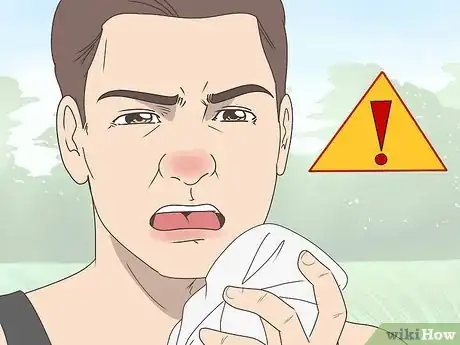

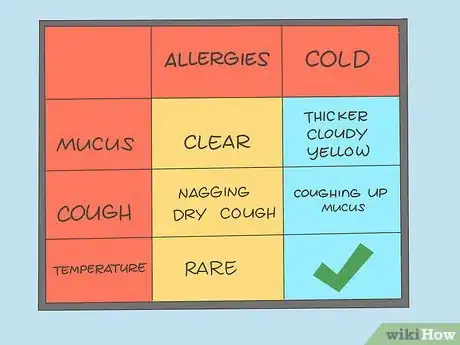
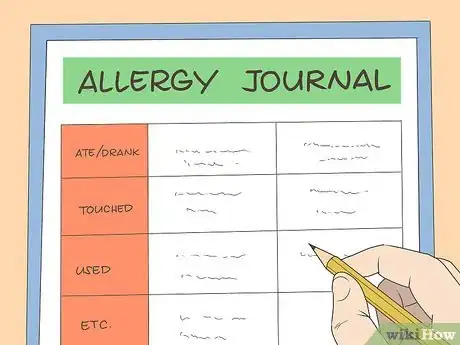
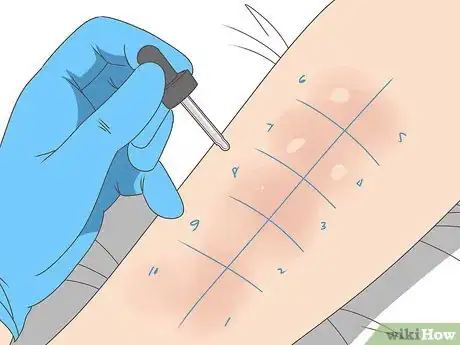

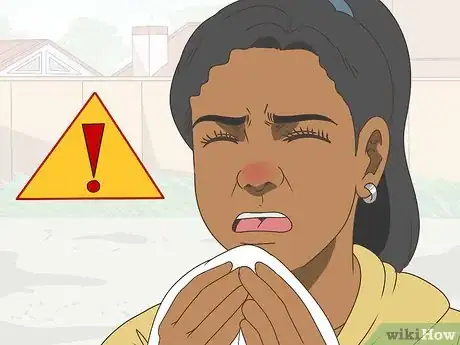
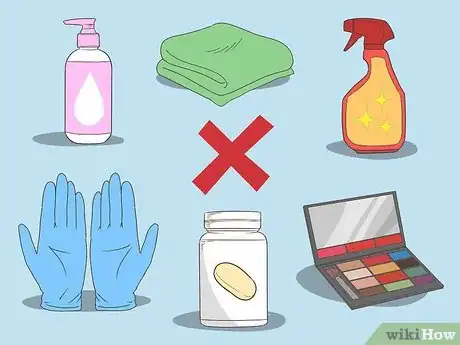
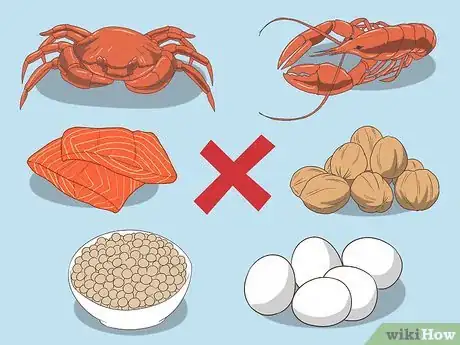

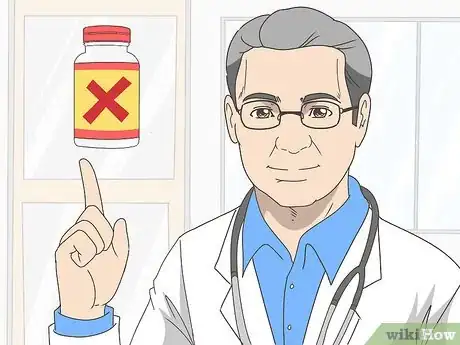

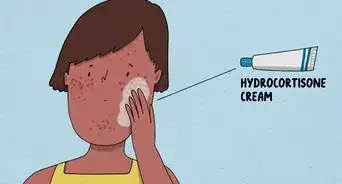
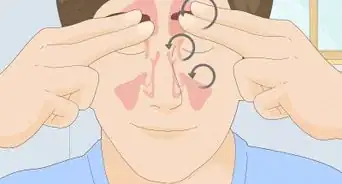
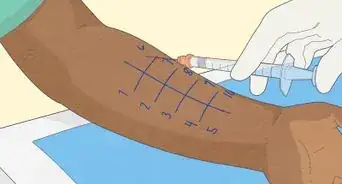
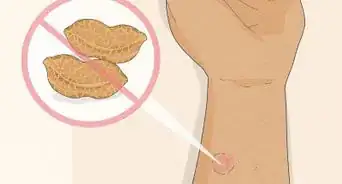


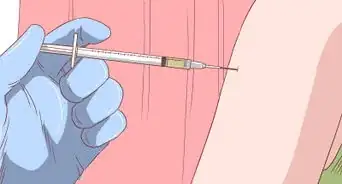
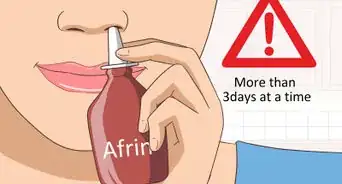

-Step-17-Version-3.webp)










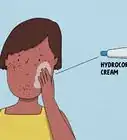
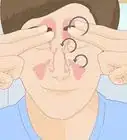
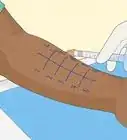



































Medical Disclaimer
The content of this article is not intended to be a substitute for professional medical advice, examination, diagnosis, or treatment. You should always contact your doctor or other qualified healthcare professional before starting, changing, or stopping any kind of health treatment.
Read More...